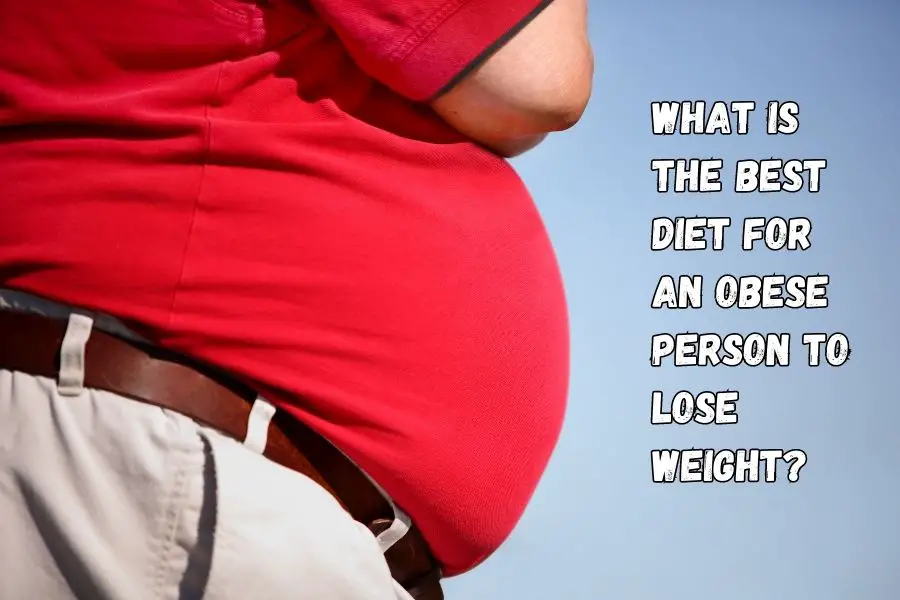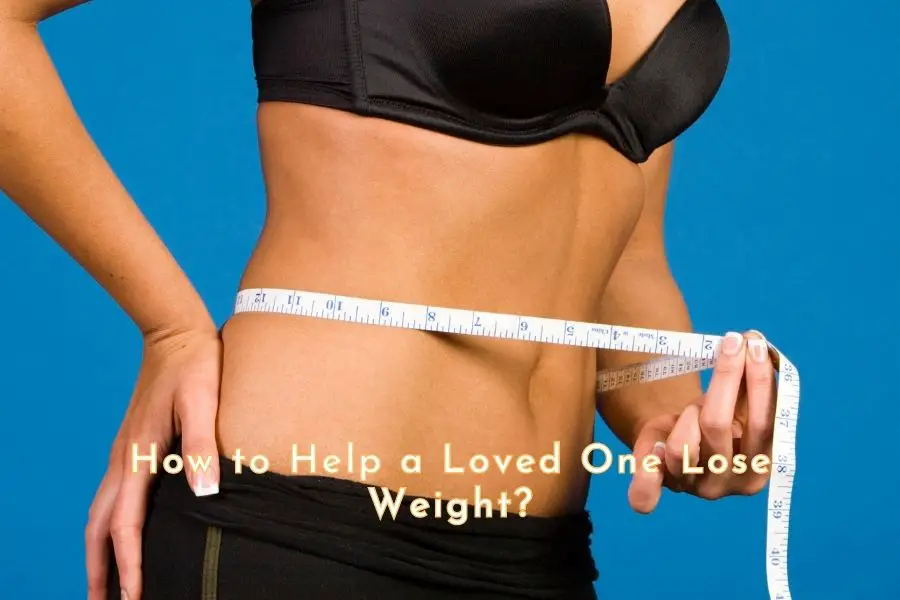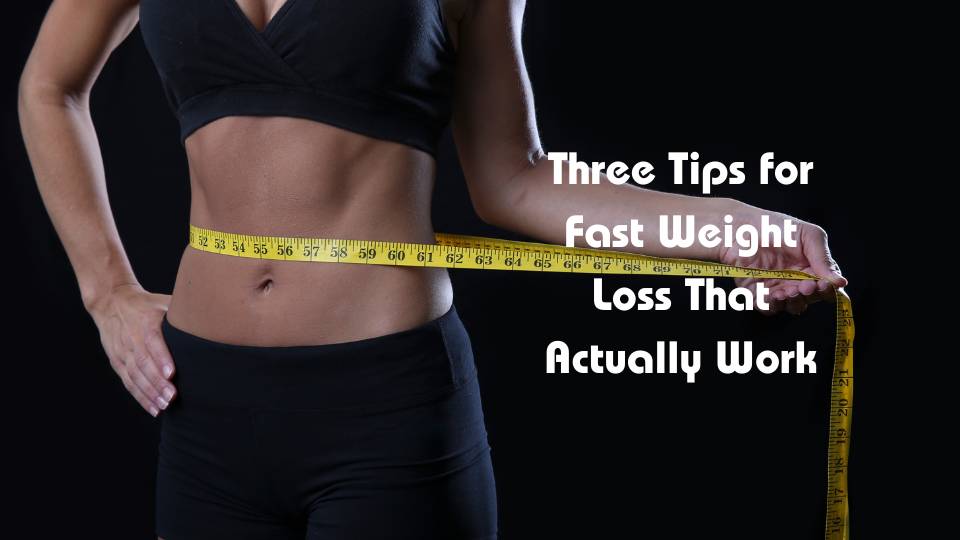If you are currently overweight or obese and find it difficult to lose weight, in most cases, it’s not your fault. It is more likely that you have been given the wrong advice.
Advice like eating less, moving more, portion control, and having a balanced and healthy diet simply don’t work for many people.
For an overweight or obese person, there needs to be a fundamental overhaul of their diets, not just simply restricting calories and exercising more.
If you are in the overweight or obese categories, it means you have a large amount of spare energy stored as fat. The key to losing weight, therefore, is to train your body to tap into this energy reserve, i.e. burn off the fat. And this is what we will explore in this article.
We will first look at the condition under which your body will dig into the fat reserve and help you slim down and then look into the diets that can facilitate this condition.
The Science of Fat Burning
The general view is that your body creates all the fat cells during childhood and adolescence and the number of fat cells remains constant despite weight fluctuations. However, some research shows that new fat cells can be created in association with excessive weight gain and other conditions. [1, 2, 3, 4]
Because you can’t reduce the number of fat cells, you need to shrink the fat cells to lose weight.
So, how do you get the fat cells to shrink?
The answer is simple: you shrink the fat cells by forcing your body to use the lipid stored in the fat cells for energy to function, i.e. burning fat for fuel.
The question then follows is how do you make your body burn fat for fuel?
Again, the answer is also simple: you train your body to burn fat by feeding it fat.
It sounds counterintuitive but that is what you must do to force your body to burn fat.
By feeding it fat instead of carbohydrates, your body will learn to burn fat for energy and, when dietary fat intake is not sufficient, it will automatically and effortlessly switch to burning the fat reserve and shrinking the fat cells, resulting in weight loss.
In addition to feeding your body fat, you also need to restrict carbohydrate consumption. This is because carbohydrates will be converted into sugar, your body’s preferred source of energy. Sugar will trigger insulin secretion which is a fat-storage hormone.
You might have been advised that you need all three macronutrients, carbohydrate, fat, and protein to stay healthy. But this is not true at all. Carbohydrates are not essential and you don’t need carbohydrates for energy, fat is actually a much better source of energy. Many societies (e.g. the Maasai, the Inuit, and the Gauchos) have lived on a diet with very little or no carbs. [5]
In summary, if you are overweight or obese, you have a large fat reserve. In order to lose weight, you need to train your body to use fat for energy by feeding it fat while limiting carbohydrate consumption which encourages fat storage.
The diets that meet these criteria are the ketogenic diet and the carnivore diet and we will explore about these diets in more detail in the following sections.
Why the Ketogenic Diet Can Help an Obese Person Lose Weight
1. What Is the Ketogenic Diet?
The ketogenic diet is a diet that is high in fat, moderate in proteins, and low in carbohydrates.
Calories on this diet are divided into approximately 55-60% from fat, 30-35% protein, and 5-10% carbohydrates. Some sources cite a slightly different macro ratio but the key to this diet is to maintain a low carbohydrate intake as explained below. [6]
As previously mentioned, your body’s preferred source of energy is carbohydrates which are converted to sugar once consumed. It will rely on carbohydrates as a primary fuel source as long as the supply is sufficient.
However, if the carbohydrate intake is less than 50 grams a day, glycogen stores will soon be depleted and your body will begin a process called gluconeogenesis to produce glucose endogenously from lactic acid, glycerol, and the amino acids alanine and glutamine. [7]
When glucose availability drops further and the endogenous production of glucose is not able to keep up with the body’s demand, it will start breaking down fatty acids and produces ketone bodies for energy. When this happens, your body is said to be in the state of ketosis. [8]
As long as carbohydrate intake remains negligible, your body will stay in ketosis. However, ketosis can also happen during prolonged fasting or starvation when your body uses up its own fat reserve to function. And this is one of the main reasons why being in ketosis is desirable: your body learns to use fat for fuel and can effortlessly dig into its own fat reserve to function and burn fat. This, consequently, leads to fat loss.
2. What to Eat on the Ketogenic Diet?
On the ketogenic diet, to remain in ketosis you need to restrict carbohydrates to about 20 to 50 grams a day. [9]
There is no food restriction on the ketogenic diet, you can eat anything you like but you will need to make sure that overall, it is a high fat, moderate protein, and low carbs diet.
Foods that help you stay in ketosis are fatty cuts of red meat, pork, chicken, oily fish, full-fat yogurt, butter, cheese, nuts, seeds, and low-carbs vegetables.
If you opt for the ketogenic diet to lose weight, make fatty animal-based food such as beef, lamb, goat, and organ meat the center of your diet. These are the most nutrient-dense food you can eat.
To add more fat to your diet, tallow, lard, butter, and cheese are great options.
As to carbohydrate sources, milk, honey and seasonal fruits are the best choices but you will need to keep consumption to a very low amount to stay in ketosis and fat-burning mode.
3. Why the Ketogenic Diet Can Help an Obese Person to Lose Weight
As mentioned above, to shrink the fat cells and lose weight, you need to train your body to use fat for energy and the ketogenic diet can help you do that.
When you eat carbohydrates, regardless of whether they are simple or complex carbs, your body will convert them into sugar. Whenever there is a blood sugar spike, the pancreas will secrete insulin, a hormone that helps your body store fat. Therefore, it is almost impossible for your body to burn fat if you keep eating carbs unless you severely restrict calories (which will make you feel starving and deprived all the time).
With very little carbohydrate consumption on the ketogenic diet, the insulin level will be low, your body won’t store fat but burn fat for fuel instead.
If you are obese, you will need to cut down calorie intake substantially so that your body is forced to use a lot of fat reserve for energy. Because you are fat-adapted on this diet, your body won’t have problems switching from using dietary fat to using stored fat.
Although low carb and high fat are emphasized on this diet, please don’t fear proteins if you are on the ketogenic diet.
Good quality proteins are needed for muscle synthesis which in turn helps you burn more calories while at rest. The more muscles you have, the higher your metabolic rate at rest will be and the more calories you will burn. [10]
In addition, when you want to lose weight, you want to lose fat rather than muscle mass. Therefore, sufficient good quality protein intake to support muscle synthesis is important.
In fact, a high protein and moderate fat to low fat diet is great for an obese person to lose weight. It doesn’t make a lot of sense to eat a lot of fat when you are obese because you already have a lot of energy reserves available and ready to be used.
I should mention that you can still lose weight successfully on a low fat and high carb diet, however, on a ketogenic diet, you will lose weight much easier. On this diet, your body is on a fat-burning mode and can burn its own stored fat when there is a significant calorie deficit. As a result, you will lose weight without feeling hungry all the time on the ketogenic diet. In contrast, on a high-carbs diet, when there is a severe calorie restriction, i.e. carbs intake restriction, your body will crave carbs and you will be struggling to control hunger. [11, 12, 13, 14]
4. Evidence that the Ketogenic Diet Is Effective at Helping You Lose Weight
Research Evidence
There is strong evidence showing that the ketogenic diet can help people lose weight effectively because on this diet: [15, 16]
- satiety hormone is increased while hunger hormone is decreased
- fat storage is discouraged and fat burning is encouraged
- increase in fat oxidation and resting energy expenditure
- increase in energy expenditure due to gluconeogenesis and the thermic effect of proteins (i.e. your body used more energy to digest proteins than carbs).
In addition to weight loss, the ketogenic diet can help with a number of other health problems including cardiovascular diseases, type 2 diabetes, epilepsy, skin condition, cancer, polycystic ovary syndrome, neurological diseases, Alzheimer’s disease, Parkinson’s disease, brain trauma, amyotrophic lateral sclerosis. [17]
Anecdotal Evidence
There is a lot of anecdotal evidence about the ketogenic diet’s ability to help people lose weight. Below is a few examples: [18]
I’m now 62 and have been on a low carb diet for 8 months. I started out at 284lbs and am now at 215.
80 lbs down in 18 months and perfect blood test numbers and blood pressure! Feel better and weigh less than when I was 25!! Keto is the key.
At 5’2″ I was 25+ overweight and so far I have lost 15 lbs. With the help of the keto lifestyle
I am down 75lbs from living this lifestyle and I cannot tell you how great I feel and how many people comment on my vibrancy
I’ve been on low carb/keto for about 6 weeks now and lost 18 pounds
I have been on my Keto diet for a month. I have lost 6% of body weight. Most of it from my belly. I don’t even do crunches. I can see two of my six packs now:)
I’ve been on keto for 3 months, I’ve lost 25 lbs another 30 to go, feel great, looking slimmer
I attest to this, I was 367lbs 15 months ago, changed my eating by elimination sugar, processed foods, and eating low carb, high fat and today I’m 190lbs and have about 20 lbs to go.
Going on two years, only needed to lose 30 pounds which I achieved fairly quickly. Blood pressure which was running high has been below 120/80 for over 18 months. Feeling great at 62 years old. At my high school weight. Knee pain has disappeared
I suffered from depression for the past 30 some years. Dozen of meds that never worked, 6 weeks in mental hospital, and NOTHING has helped. Started keto the beginning of April. Down 27 lbs. 331/2 inches and NO MORE DEPRESSION!!!!!! Only time I even feel down is when it is really bleak outside. Living in Indiana, winters are really difficult due to less, and less sunshine!!
Why the Carnivore Diet Can Help an Obese Person to Lose Weight
1. What Is the Carnivore Diet?
A carnivore is an animal that feeds on other animals. Therefore, strictly speaking, by definition, someone on the carnivore diet will basically just eat animal source food such as ruminants, pork, poultry, and seafood and drink water.
However, a broader version of the carnivore diet can include all foods that come from or are produced by an animal including ruminant meat (e.g. beef, lamb, goat, and bison), pork, poultry, seafood, eggs, dairy, and honey.
2. What to Eat on the Carnivore Diet?
On the carnivore diet, all you can eat are food from the animal kingdom. Some reported doing well with just muscle meat and water. However, some advocates a nose-to-tail approach on this diet where one eats not just meat but also organ meats because they are considered the most nutrient-rich food. For example, liver is a rich source of protein, iron, zinc, riboflavin, niacin, vitamin A, folate, and vitamin B12. Kidney is rich in protein, thiamin, riboflavin, iron, and a source of folate. [19]
Unlike the ketogenic diet, there is no need to maintain a certain macronutrient ratio on this diet. Eat fresh unprocessed meat, eat nose-to-tail, eat a variety of food and you will be in ketosis, the state of burning fat for fuel. This has been how our ancestors ate for millions of years, the meat of large animals that they scavenged or hunted. [20]
3. Why the Carnivore Diet Can Help an Obese Person to lose weight
The carnivore diet can help an obese person to lose weight effectively because it is a ketogenic diet. On this diet, you will be consuming very little carbohydrates and will rely on fat for fuel.
The only difference between the carnivore diet and the ketogenic diet is the exclusion of plant food.
If you haven’t come across the carnivore diet before, a question that will probably come up immediately is how could eating only meat be healthy even if it helps you lose weight.
Let me assure you that it is a perfectly healthy diet if you know how to do it right.
In fact, the totality of evidence from human physiology and genetics, archeology, paleontology, and zoology points to the fact that our ancestors were hyper-carnivorous apex predators that ate mostly meat from large animals for 2 million years. They had not only survived but thrived on this diet. [21]
If this meat-based diet were somehow nutritionally deficient, we definitely wouldn’t have been where we are today.
You might have been told all your life that fruits and vegetables are the most healthy food you can eat. But this is not true at all.
Fruits and vegetables may look colorful, healthy, and inviting but they are certainly not the best food you can eat.
Plants are stuck to the ground and, to protect themselves, they resort to chemical warfare and they are very good at it. Although edible fruits and vegetables can be full of nutrients, they are also full of toxins or natural pesticides. Consuming them regularly in large quantities can cause a lot of health problems in some people. [22, 23]
Eating a small amount of plant food with seasons can help you meet all nutritional requirements more easily and maintain metabolic flexibility. But it doesn’t make sense to eat a lot of plant food and consume these toxins while you can eat animal-based food that is nutrient-dense and free from toxins.
4. Evidence that the carnivore diet can help an obese person to lose weight
The carnivore diet is relatively new and there is not yet any controlled study on this diet’s ability to help with weight loss.
However, there is a lot of anecdotal evidence available on the web, and below is a few examples: [24]
I’ve gone from 155kg to 90kg on carnivore, never looked back. metabolic syndrome cured including type 2 diabetes in full remission with no drugs, cholesterol down from 9.8 to 4.7, eating red meat and yet my triglycerides are now perfect, the opposite of what the doctors told me. BP down from 120/180 at my worst to 70/110 now, and I still have 15kg to go. It fixed so many issues with me. I’m finally at a weight where I can exercise safely without giving myself a heart attack or wearing out my joints so it will only accelerate from here. I cannot recommend this diet more highly to anyone who struggles with obesity.
I lost 70 lbs and reversed diabetes in 4 months on carnivore. I never counted calories and only walked for exercise.
15 months on carnivore I am down 150+ lbs reversed all my metabolic dysfunction and almost down to my goal weight
30 days carnivore i lost 30 pounds. Granted I had a lot of inflammation. So lots of that weight was bloat and fluid. My family was so impressed many of them are trying it.
I can not do keto/carnivore the right way because of my job. I drive an 18 wheeler. However I started doing a dirty version of carnivore 2 months ago and I’ve dropped 3 pants sizes, about 34 pounds. Still have 51 to go
Down 29 lbs. since Dec. 2020 on Carnivore and OMAD. I have never had any success trying to lose weight previously. Now… I eat eggs, bacon, beef, fish, and I am never hungry.
It works 100%!!! Went from 205 down to 155 in 3 months!! Gave up wheat barley rye and oats completely. No exercise!
I’ve lost almost 60 pounds in 4 months! I still want to lose another 50. I had given myself a year to do it when I started Carnivore. But at the rate I’m losing, I’ll meet my goal sometime in May! “Effortless Easy” that is so true! If it were difficult or involved a lot of calorie counting or “eat this at this time”, it wouldn’t have worked for me.
I been on the Carnivore diet since New Years Day. Getting close to the 2x Month mark. I was 294lbs, now I am weighing in at 263-267lbs. I honestly haven’t even exercised either, this is purely diet only. It works.
I started this diet about 3 months ago… My weight dropped from 201 down to 163. I eat only one meal a day and that’s supper time because I don’t be hungry during the day… I should also add is that I’ve been taking blood pressure pills on a daily basis for about 20 years. Since I started this diet, I only need to take them every 6 days or so.
In addition, in a survey on the carnivore diet experience of over 2000 people carried out in 2020 by a team of researchers from Harvard Medical School and other institutions, 93% reported improving or resolving their overweight or obesity. An overwhelming majority of the participants also experienced positive health outcomes. In particular:
- 69% improved chronic disease
- 95% improved overall health
- 91% improved hunger/food cravings
- 85% improved mental clarity
- 66% improved memory
- 83% improved focus
- 69% improved sleep
- 78% improved strength
- 76% improved endurance
- 89% improved energy.
Conclusion
The ketogenic diet and the carnivore diet both have the potential to help an obese person lose weight in a healthy way and keep it off.
However, like all diets, there are healthy and unhealthy versions of the ketogenic diet and the carnivore diet too.
Whatever diet you choose to follow, make sure you follow these principles:
- eat whole food
- eat a variety of food
- eat with season as much as possible
- eat minimally processed food, and
- eat pasture-raised and organically sourced food if you can afford
- eat only when you are genuinely hungry.
Other posts you might be interested in:
Three Science-Backed Strategies for Fast Weight LossThe Best and Most Healthy Way to Lose Weight and Keep It Off
How to Carnivore Diet While Traveling
How to Lose the Last Few Pounds on the Carnivore Diet?
How to Avoid Weight Gain During the Holidays
Is Carnivore the Best Anti-Aging Diet Around?
What Are the Health Benefits of the Carnivore Diet?
Disclaimer: The information in this post is for reference purposes only and is not intended to constitute or replace professional medical advice. Please consult a qualified medical professional before making any changes to your diet or lifestyle. Please check out our disclaimer for more detail.






